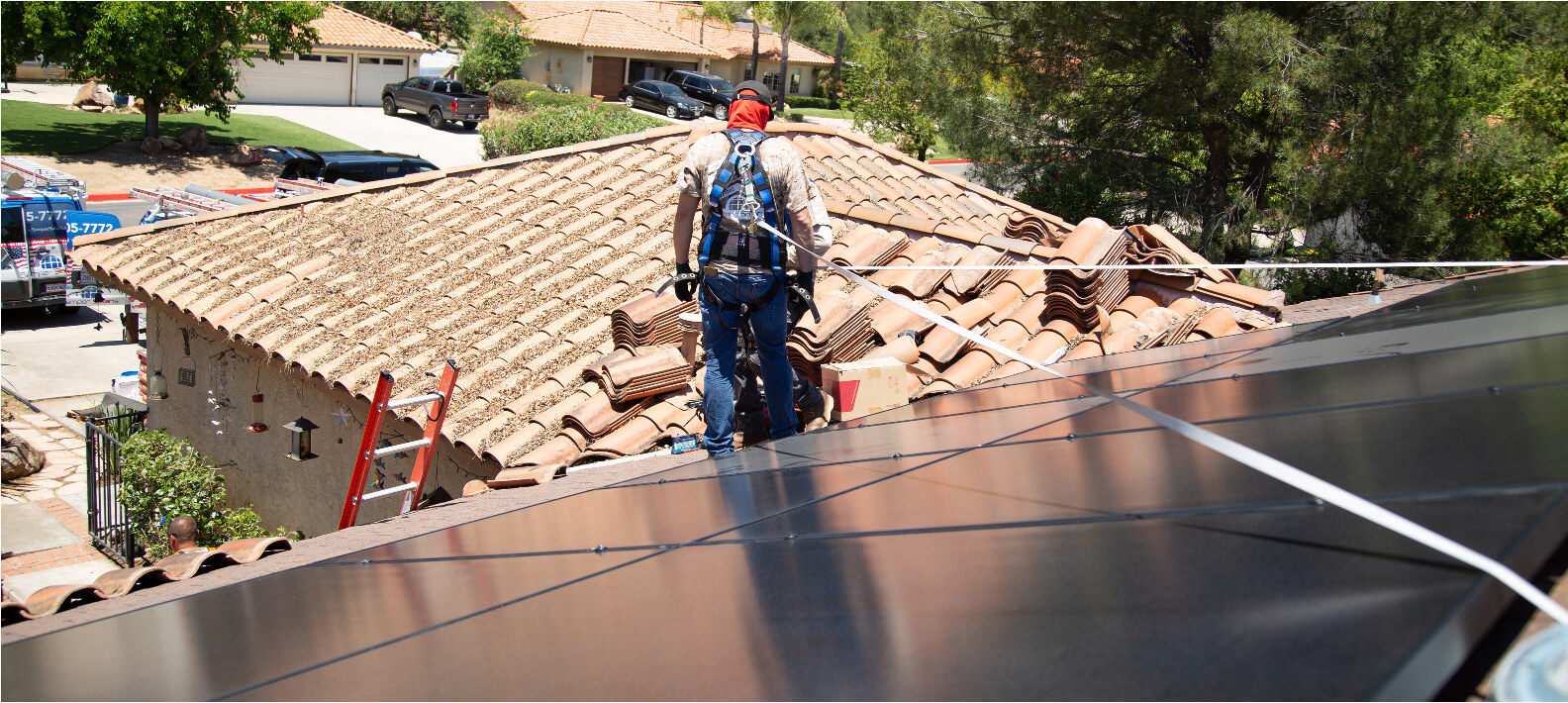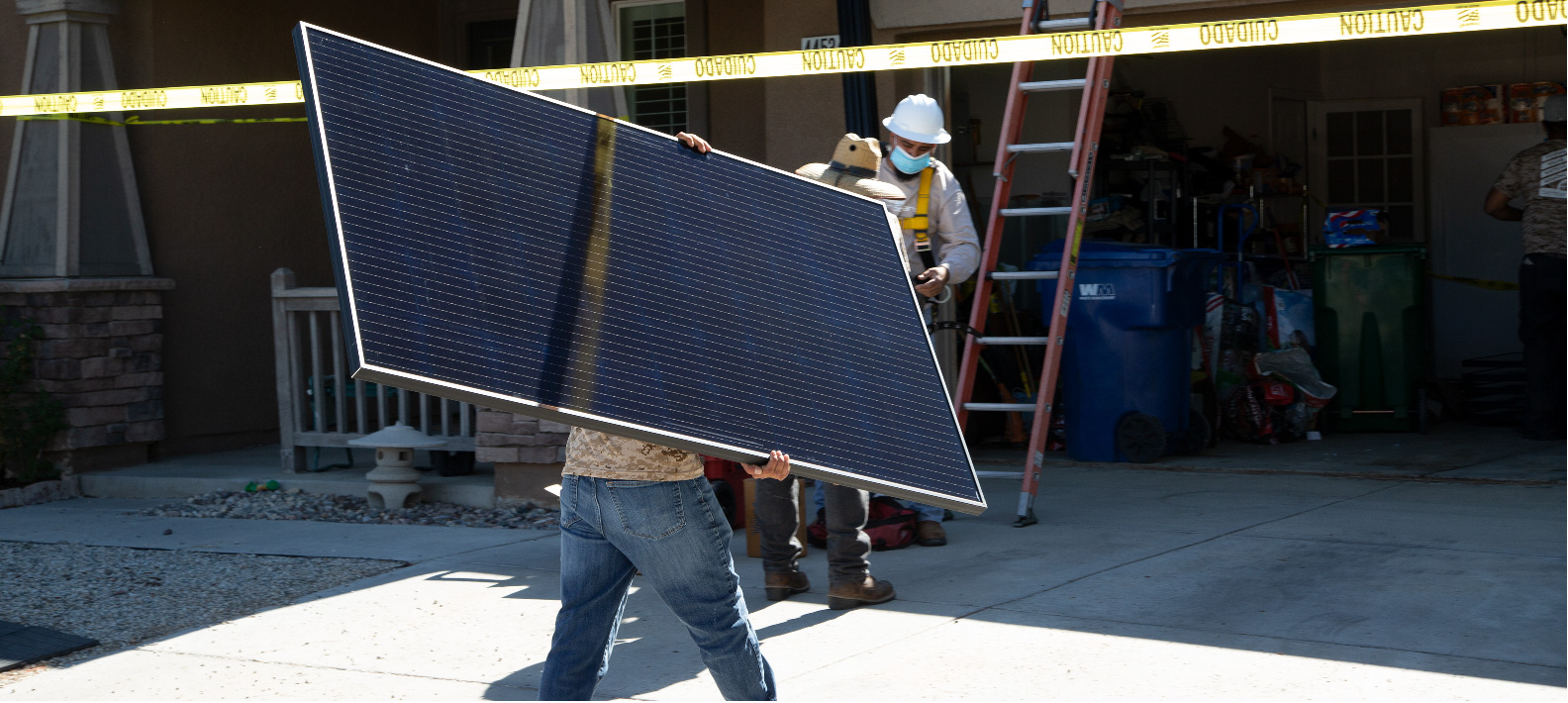




The decision to go solar is not one most homeowners make lightly. The switch takes a financial investment, for one, and using solar also requires a commitment to conservation. While we think solar always pays off, we understand that people have a lot of questions about what it really means to own solar panels. How much will it cost? Does it matter if you’re the only one on the block with PV panels? It’s normal to be inquisitive.
Before you set up your consultation to learn more about installing solar panels for your home, take a look at these commonly asked questions about residential solar. You may find that solar panels are not as overwhelming as they sound. In fact, they will make your life a lot easier. Here is everything you need to know to get started.
The first thing to ask yourself is “Is my home a good candidate for solar panels?” Most homes are, but the three main factors are: sun, location, and space. You need enough sunlight per day for the panels to do their job, a location without obstruction that faces the right direction, and adequate room on your roof for the number of watts your home requires.
Google’s Project Sunroof is a good place to start. Enter your address to see how many hours of usable sunlight you get per year; the tool also provides the expected solar savings over 20 years. The ideal placement for solar panels on a home is on a southern-facing flat roof. East- and west-facing roofs can also get a lot of sun. If you can only place your panels facing north you may not be the best candidate for solar panels, or you may need to get creative to make it work.
The cost to power your home via solar depends a lot on the size of the property and how much electricity you use. If you have a lot of natural light and don’t use central air, you won’t need as many watts at your disposal as a home with heated floors and a hot tub. A custom estimate will give you the best idea of how many panels are ideal for your property. That being said, we can turn to the average costs of solar to get an idea of how much they will likely cost:
Choosing the right solar panels and finding an installer you trust can be time consuming. After all, you’re going to be counting on your PV panels to power your home for decades to come. By the time you have an appointment to get the panels delivered and installed, you’re ready for the process to be over! The good news is that installing solar panels for your home usually takes just one to three days, depending on the size and number of your panels.
You can stick around to help the installers with any questions, or get out of the house so you don’t have to listen to people walking on the roof all day. Installers will take care of everything from roof prep to meter installation at the same time the panels are placed.

All solar panels operate in basically the same way: they harness the energy of the sun for use in your home. But not all panels are constructed in the exact same manner. There are three main types of solar cells to choose from, each with their own advantages and disadvantages.
Solar panels have a few key benefits. The immediate returns include a monthly savings on your utilities -- you could eliminate your electric bill altogether, and you may even be able to sell some of your solar surplus back to the local grid. The long-term benefits of going solar include:
Your solar panels are left exposed to the elements. You may be wondering if they will survive their first hail storm or what happens in the event of a lightning strike. The good news is that solar panels are tested and made to withstand nearly any weather event. Grounding solar panels makes it very unlikely they will be hit by lightning, and they are designed to get through high winds and hail without major damage. Many solar panels were even able to survive Superstorm Sandy in 2012. In the rare event that your solar panel is damaged by weather, your homeowner’s insurance is likely to help you cover the costs of fixing or replacing the panels.
Like any appliance or electronic device, solar panels do have a degradation rate. This rate represents the rate at which PV panels lose their efficiency. In other words: when do they stop working? Manufacturers used to think their panels would degrade by 1% each year, meaning they would only work at 80% after 20 years. But not so fast.
In fact, a solar panel made today will degrade at a rate of less than 0.4% per year. After 20 years, your solar panel will still work at 92% of its maximum efficiency. Check out this guide about how much solar panels are worth after a few years.
Are solar panels right for you? If you want to save money on utilities and do good for the environment, it sounds like it’s time for a consultation. Our professional team will take a look at your property, identify potential obstructions, and give you an estimate for installing solar panels for your home. There’s no pressure, just a risk-free conversation with Semper Solaris about how solar could give you energy independence and make your home more appealing to future buyers.